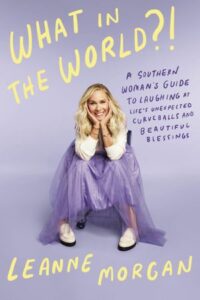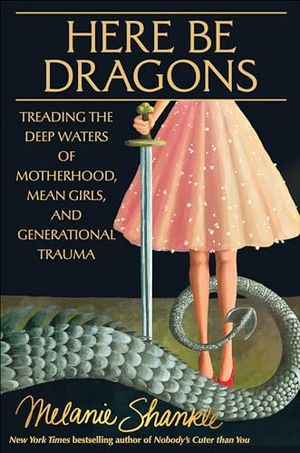From the New York Times bestselling author of Nobody’s Cuter than You comes a poignant, deeply personal story about trusting God to heal generational wounds so you can be a strong, loving presence for your teenage daughter.
In medieval times, uncharted waters were marked on maps as Here Be Dragons to signify that no one knew what dangers might lie ahead. Melanie Shankle quips that the years spent raising our teenage daughters could be labeled the same due to the uncertainties before us.
Like a lot of moms, Melanie found herself in need of a parenting map when her teenage daughter, Caroline, entered her sophomore year of high school where she encountered relentless mean girls and brutal heartache. While trying to equip her daughter to deal with the toxic social dynamics of high school, Melanie was hit with a cruel The shame, criticism, and verbal abuse she had endured throughout her own life was wrought by one particular mean girl—her own mother.
Melanie hoped to raise her daughter to be a warrior, and she realized she couldn’t do that unless she became healthy enough to fight her own dragons. She invites you into her story as she explores her complex family dynamics, discovering what it takes for any of us to survive and ultimately thrive in spite of wounds that remain. This was the beginning of her journey of trusting God to help break generational cycles that had told the women in her family to find their value in everything but His love.
Filled with personal stories and written in the same whimsical and honest style Melanie is known for, Here Be Dragons will have you both laughing out loud and crying—sometimes on the same page—as you confront the challenges of raising your own strong, independent daughter while fighting dragons along the way.


